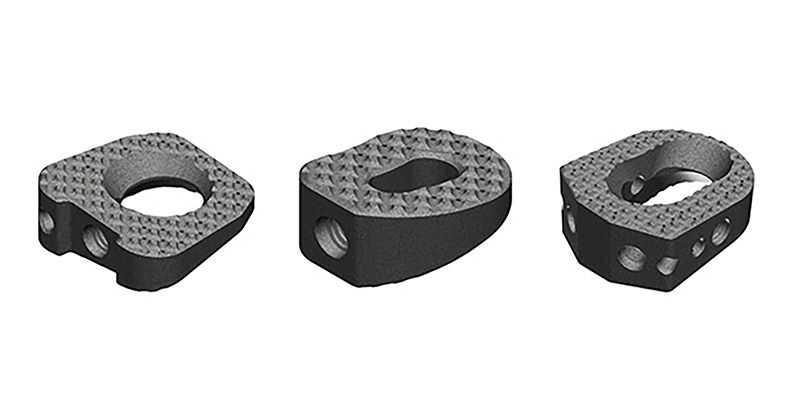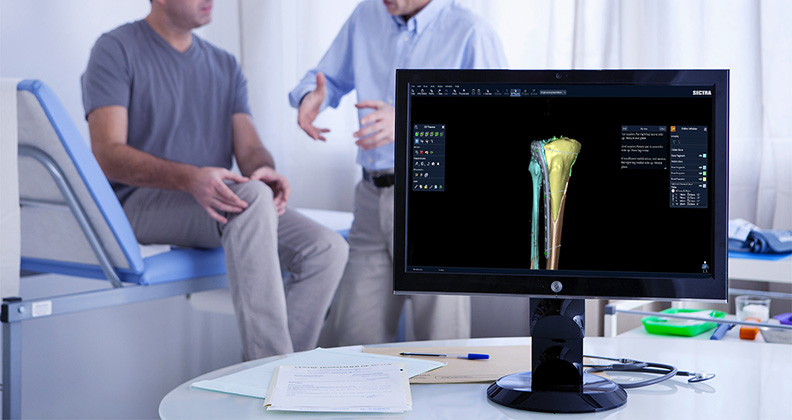It’s nearly impossible to stay informed about all the comings and goings within the orthopedic industry. We’re bringing you up to speed with this roundup of recent leadership changes, company expansions and product developments.
Strategic Initiatives and Partnerships
Elos Medtech’s Board appointed the Chairman, Stefano Alfonsi, as new President and CEO. Alfonsi will step down as Chairman of the Board and remain a Board Member. The Board has appointed the current Board Member, Magnus René, as new Chairman of the Board. Alfonsi succeeds interim CEOs Jodie Gilmore and Søren Olesen, who will remain in their positions as President and Business Unit Directors.
Alfonsi has extensive experience from the medical technology industry, where he has been Chairman of the Board of Directors and CEO of Corin Group, CEO of LimaCorporate and held Vice President positions in Johnson & Johnson’s DePuy.
Implant Surfaces and CMDC Labs have agreed to expand a joint development effort to pursue immunological and tissue integration research relating to machined and 3D-printed titanium implantable medical devices. For the last decade, the companies have collaborated to optimize six unique titanium topologies that preferentially encourage targeted cell lines to attach to medical devices, including direct Osteoblast attachment to spinal implants while minimizing fibroblast interference.
Working together, the companies will now more broadly analyze the body’s immune and microbial responses and relative surface biocompatibility of well-established post-treatments for titanium and titanium alloy devices, with particular attention paid to 3D-printed medical implants.
Lincotek Group has appointed Andrea Colombo as its new CEO. The position was previously held by Winfried Schaller. Colombo brings more than 25 years of international experience in the Energy, Oil & Gas and FinTech industries. Colombo comes from NCR, where he was Vice President of Global Product Operations. Prior to NCR, he was Vice President of the Energy Business Unit at Chromalloy, and earlier spent 14 years with General Electric Oil & Gas, managing businesses of increasing size up to $3.5 billion in annual turnover.
Nikon signed an investment agreement with SLM Solutions Group, a global leader in metal additive manufacturing (AM) solutions. In conjunction, Nikon AM, a direct subsidiary of Nikon, launched a voluntary public takeover offer for the acquisition of all outstanding shares of SLM for a cash consideration of €20.00/share. The total transaction value is €622 million (JPY 84 billion, US $616 million). The transaction would allow SLM to continue to thrive in the developing space of metal AM. The acquisition of SLM expands Nikon’s portfolio of metal AM methods, which will enable Nikon to offer new solutions, win new business and expand its customer base.
Nikon emphasized in the investment agreement that it intends for SLM’s current management team to continue to lead the company and execute its strategy. Nikon also underlined its commitment to secure the future of SLM’s employee base, operational structures such as works councils, as well as SLM’s headquarters in Lübeck, Germany and other material operations.
Oxford Performance Materials (OPM) and SINTX Technologies announced their successful development of a new class of orthopedic coatings. These coatings target overcoming the clinical limitations of metallic implants, some of which have come under increasing scientific and regulatory scrutiny worldwide.
SINTX and OPM combined their respective expertise in polymer and ceramic material science to create a novel composite coating technology that can be applied to biomedical metallic substrates. Silicon nitride and PEKK polymer are biomaterials that already have FDA clearance for human implantation.
OPM and SINTX jointly developed a suspension of PEKK and submicron silicon nitride powder that can be applied to titanium, as well as other metallic substrates used in modern orthopedic and dental surgery. The suspension is then cured to form a tough and tenaciously adherent composite film less than one micron in thickness. Further testing is underway toward submission of the technology for regulatory approval. Under a licensing agreement in place, either company can enter royalty-bearing commercial agreements with mutually selected customers.
Rosies Base, a start-up R&D company developing bio-compatible, durable and cost-effective nano-structured alloys for use in medical devices, signed a research agreement with SpineCraft to investigate the compatibility and effectiveness of nanoTi in the manufacture of spinal implant rods.
Rosies Base claims to be the world’s only supplier of nanoTi, a titanium alloy created through a proprietary metallurgical rolling process that delivers ultra-fine-grained metal alloys that are reportedly thinner and stronger than standard alloys, with anti-microbial properties that resist the formation of biofilms on implanted devices. The company’s first product, nanoSUS, is a nano-structured stainless steel designed to offer higher strength than conventional surgical-grade stainless steel. Rosies Base will pursue FDA 510(k) clearances of nanoTi implants while conducting studies in larger animals that further examine their antimicrobial property claims.
Capability and Regulatory Announcements
Amnovis has incorporated process improvements into its additive manufacturing contract manufacturing workflow for titanium implants. This has led to significantly increased productivity on behalf of titanium spinal cage and other medical device OEMs. Amnovis is now able to produce 3D-printed spinal cages at a lower cost and shorter lead times.
Amnovis’ founders were among the first to employ laser powder bed fusion for printing titanium medical implants. Incorporating the recent process improvements into its manufacturing workflow allows Amnovis to expand its potential for standard and patient-specific medical device innovation.
Cadence, a contract manufacturer of medical and drug delivery devices, completed its Product Realization Center expansion in Cranberry Township, Pennsylvania. The facility now totals 42,000 square feet. Construction is underway to double the size of its Class 7 (10,000) cleanroom, with a completion date set for mid-December 2022. The entire cleanroom space will be re-certified to Cadence’s controls and ISO Class 7 standards by December 11.
Guardian Medical successfully completed 10-year accelerated aging testing for its pre-validated CapSure sterile barrier packaging system. The company designs, manufactures and sells CapSure, a tube packaging system for medical devices in fields such as orthopedics, craniomaxillofacial surgery and dental.
MCRA, a regulatory advisory firm/clinical research organization, announced the formation and expansion of its biostatistical division, led by former FDA biostatistician Alvin Cutler Van Orden. To support the company’s growing role in providing biostatistical consulting services across all therapies, MCRA has hired Van Orden as its Vice President of Biostatistics.
Millstone Medical Outsourcing broke ground on a third cleanroom facility expansion at its Fall River, Massachusetts headquarters. The expansion will add 5,000 square feet of Class 10,000/ISO7-rated space for medical device packaging operations, bringing Millstone’s total cleanroom footprint to 20,000 square feet. The latest construction project follows the completion of a significant expansion in 2020 of the company’s Headquarter Campus, which added 60,000 square feet of warehouse and office space. The campus’s total production space now sits at 124,000 square feet.
Nelipak Healthcare Packaging, a global manufacturer of rigid and flexible packaging solutions for medical device, pharmaceutical and other applications, received International Sustainability and Carbon Certification (ISCC) PLUS certificates at two of its North American facilities in Phoenix, Arizona, and Whitehall, Pennsylvania.
ISCC PLUS is a globally recognized third-party certification system for tracking recycled and bio-based materials through the supply chain. Nelipak offers in-house design, prototyping, tooling, simulation, validation, laboratory and other value-added services as well as a line of tray sealing equipment.
SINTX Technologies held a successful 510(k) pre-submission meeting with FDA concerning the potential development and commercialization of silicon nitride-PEEK (FleX-SN PEEK) spine implants.
In the meeting, FDA officials provided feedback related to the company’s underlying regulatory assumptions and strategies. SINTX intends to utilize FDA’s guidance to move forward with its 510(k) filing and initiate commercialization efforts to introduce spine implants made of its novel FleX-SN PEEK composite material. FleX-SN PEEK is among a new line of biomedical innovations created by the company and is not restricted to any exclusive commercial partner.
To create FleX-SN PEEK, SINTX partnered with Solvay to enhance their Zeniva PEEK biomaterial, which features a favorable material modulus and an established clinical track record. The resultant FleX-SN PEEK product is expected to facilitate faster bone healing, improve radiographic imaging, avoid metal ion release in the body and have broad-spectrum resistance to infection. This makes the composite material attractive for many surgical applications such as spinal implant surgery. Individually, silicon nitride and PEEK are already FDA-cleared for human implantation with many years of clinical success.
JAV
Julie A. Vetalice is ORTHOWORLD's Editorial Assistant. She has covered the orthopedic industry for over 20 years, having joined the company in 1999.




